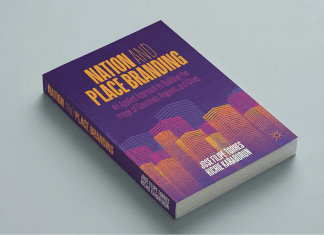The nature of Soft Power and the differences between Soft Power and Nation Branding have been explored in a previous article. In this article, we discuss the importance of integrating Soft Power into Nation Branding to help develop positive perceptions of a country.
We consider the planned and unplanned nature of Soft Power and the range of expressions of culture that can contribute to a country’s Soft Power resources. From a policy perspective, the role of international aid and development is also acknowledged.
The role of public diplomacy and Ministries of Foreign Affairs is also discussed, along with the need to establish a brand management structure to ensure effective integration of Soft Power into the country’s broader Nation Brand.
Soft Power – Planned and Unplanned
As with Nation Branding more generally, Soft Power – a concept developed by Joseph S. Nye Jr, who sadly passed away recently – is characterized by a combination of planned and unplanned elements.
As part of a planned strategy, several countries have made substantial investments in cultural institutions tasked with promoting their country’s cultural resources including language, literature, music, theatre, cinema, and art. Organizations such as the Japan Foundation, the Goethe Institute, the British Council, L’Institut Français, and the Confucius Institute actively contribute to their Nation Brands by showcasing and supporting events and outreach programmes targeting foreign publics.
Soft Power manifests itself in different forms from one country to another, frequently emerging organically rather than as a planned initiative.
For example, in the case of Scotland, much of the country’s Soft Power can be traced to the early days of exporting Scotch whisky and its related imagery to the rest of the world.
Nigeria’s Soft Power derives to a large extent from its hugely successful popular film industry.
The soft power resources of Jamaica include not only iconic figures such as Bob Marley and Usain Bolt but also elements such as the country’s culinary traditions which may have been relatively overlooked. Bloom Consulting has worked with the Jamaica Promotions Corporation (JAMPRO) since August 2023 to position Jamaica beyond being perceived solely as a tourism destination and to highlight the country’s gastronomy and investment opportunities. This work was guided by the Bloom Consulting Nation Brand Taxonomy Model© and analysed international perceptions through proprietary software Live Quanti©, D2-Digital Demand© and D2-Digital Supply©.
However, Soft Power is not dependent exclusively on expressions of culture; it can also derive from policy choices such as committing funding to international aid and development. This can be embodied in a country’s Nation Brand narrative as in the case of South Korea’s transition from a recipient of international aid to a donor of such aid. This transition not only represents a source of national pride, it also constitutes a significant Soft Power underpinning of South Korea’s Nation Brand on the global stage.
Public Diplomacy and the Role of Ministries of Foreign Affairs
Public diplomacy, enacted by Ministries of Foreign Affairs (MFAs), can support the projection of Soft Power as an element of a country’s Nation Brand strategy.
Though now well established as a concept and practice, there is wide variation in the extent to which public diplomacy is embraced by the MFAs of different countries. Some countries actively engage in public diplomacy as a means to promote their image abroad whilst other countries demonstrate less interest.
The United Kingdom’s MFA – the Foreign, Commonwealth & Development Office (FCDO) – recognizes the importance of public diplomacy and Soft Power and in early 2025 collaborated with the Department for Culture, Media and Sport (DCMS) to establish a Soft Power Council tasked with shaping the UK Government’s Soft Power strategy and impact. The challenge in this case will be to ensure that the work of the Soft Power Council translates into concrete actions that align with and support the broader GREAT campaign, which recently underwent an Independent Strategic Review by a 3-person expert panel including Bloom President Keith Dinnie.
Another country whose MFA demonstrates a clear commitment to public diplomacy is Pakistan. Pakistan’s Ministry of Foreign Affairs defines its main spheres of public diplomacy as follows: Cultural and sports diplomacy; Educational programmes and linkages between academia, universities and think tanks; Youth and civil society engagement; Tourism including religious tourism; and, Digital Diplomacy.
Soft Power and the Nation Brand
Many of the sources of Soft Power – such as music, art and literature – emerge organically rather than from a planned strategy. However, despite its largely organic nature, Soft Power can be managed and integrated into a country’s Nation Branding strategy.
Regardless of which government department or cultural institution is leading on the country’s Soft Power projection, the Soft Power strategy needs to align with the country’s wider Nation Brand strategy. Ensuring such alignment requires the creation of a suitable Nation Brand management structure, as outlined in Step 9 of Bloom Consulting’s 14 Steps to Nation Branding Guidebook. Each country will have its own specific characteristics and objectives, therefore there is no one-size-fits-all template for the Nation Brand management structure.
Published on 28.05.2025.
Cite article:
Bloom Consulting (2025). How to integrate soft power into nation branding. Bloom Consulting Journal, 28 May. Available at: https://www.bloom-consulting.com/journal/integrating-soft-power-nation-branding








